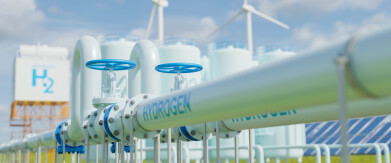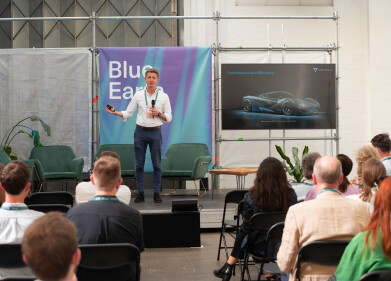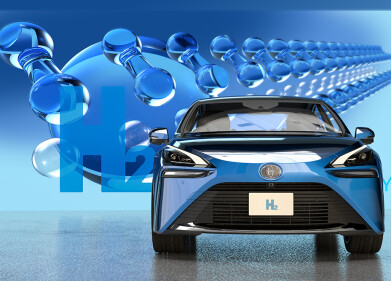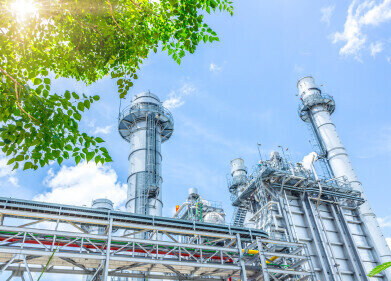Hydrogen fuel
US continues to forge ahead with hydrogen investment
Oct 02 2024
The hydrogen energy sector in the U.S. has gained significant momentum in recent years, fueled by a growing awareness of the need for cleaner, more sustainable energy solutions. This shift is especially critical as the U.S. pushes forward with its carbon reduction goals, targeting significant emission cuts by 2030. Two major developments illustrate the current advancements in hydrogen technology: the University of Maryland’s initiative to improve hydrogen infrastructure and the BMW-Toyota partnership to bring hydrogen-powered vehicles to market.
One of the most exciting recent developments is the partnership between BMW Group and Toyota Motor Corporation. Both automotive giants have committed to advancing hydrogen fuel cell technology, which is seen as a vital component in achieving carbon neutrality in the transportation sector. This collaboration aims to launch BMW's first-ever series production fuel cell electric vehicle (FCEV) by 2028, with the powertrain jointly developed by the two companies.
BMW’s focus on hydrogen fuel cells complements its existing electric vehicle portfolio. By offering hydrogen-powered vehicles, BMW adds a crucial zero-emission option that can overcome some of the limitations of battery electric vehicles (BEVs), such as longer refueling times and range limitations. The Toyota-BMW collaboration leverages Toyota’s extensive experience with fuel cells—best exemplified by the Toyota Mirai, one of the first hydrogen-powered cars to hit the market. Together, the two companies plan to scale up production and reduce costs, making hydrogen vehicles more accessible to consumers.
Beyond vehicle production, both BMW and Toyota are working on the necessary infrastructure to support hydrogen-powered mobility. Their joint effort extends to promoting the expansion of hydrogen refueling stations, as both companies recognize that the lack of infrastructure remains one of the largest hurdles to hydrogen vehicle adoption. Their vision for the future also includes broader uses for hydrogen in commercial vehicles and industrial applications, making their efforts a vital part of the hydrogen economy.
While BMW and Toyota focus on consumer vehicles, the University of Maryland (UMD) is addressing the critical infrastructure challenges that hinder the widespread adoption of hydrogen-powered transportation. In a recent initiative, UMD secured a $10 million grant from the U.S. Department of Energy (DOE) to advance hydrogen fuel technology, particularly the development of hydrogen refueling stations.
The project, part of a broader $62 million funding initiative, seeks to overcome the “chicken-and-egg” problem facing hydrogen technology: the need for more hydrogen-powered vehicles to justify the infrastructure investment, and vice versa. UMD, alongside partners like Plug Power and Washington State University, is working to develop a modular, standardized hydrogen refueling station design. This effort is aimed at ensuring that hydrogen stations meet federal operational standards and become more widely available, thus supporting a larger hydrogen-powered vehicle fleet.
One of the key innovations emerging from this collaboration is Plug Power’s HYPER-Fuel system, which seeks to address one of the most significant issues with hydrogen storage: the loss of stored liquid hydrogen due to evaporation. HYPER-Fuel’s solution involves reliquifying hydrogen, minimizing these losses and improving storage efficiency. This technological leap could make hydrogen refueling stations more reliable and economically viable, thus accelerating the deployment of hydrogen-powered vehicles across the country.
The push for hydrogen as a viable clean energy source extends beyond just the automotive sector. Hydrogen is already in use in industrial applications like petroleum refining and fertilizer production, and its role in heavy-duty transportation and long-duration energy storage is growing. This makes hydrogen a key player in decarbonizing sectors that are traditionally difficult to electrify.
To fully realize the potential of hydrogen, both private and public sector initiatives must work together. Partnerships like those between BMW and Toyota, and efforts like UMD’s hydrogen infrastructure development, are crucial steps in building a sustainable hydrogen economy. Governments, too, play an essential role by creating regulatory frameworks that encourage investment in hydrogen infrastructure and by providing incentives for companies to adopt hydrogen technologies.
Despite the optimism surrounding hydrogen, significant challenges remain. Infrastructure development is still lagging, and hydrogen production, while clean at the point of use, depends heavily on the source of energy used to produce it. Most hydrogen today is produced using natural gas, which still emits carbon dioxide. However, efforts are underway to scale up "green hydrogen" production, which uses renewable energy sources like wind and solar to generate hydrogen with no emissions.
Digital Edition
PIN 25.6 Buyers' Guide
January 2025
Buyers' Guide Directory - Product Listings by Category - Suppliers Listings (A-Z) Articles Analytical Instrumentation - ASTM D7042: The Quantum Leap in Viscosity Testing Technology -...
View all digital editions
Events
SPE Hydraulic Fracturing Technology Conference and Exhibition
Feb 04 2025 The Woodlands, TX, USA
Feb 05 2025 Guangzhou, China
Trinidad and Tobago Energy Conference 2025
Feb 10 2025 Point Lisas, Trinidad
Feb 11 2025 Lagos, Nigeria
Feb 13 2025 Manama, Bahrain



















